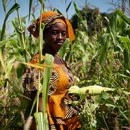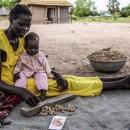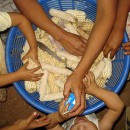Saturday, June 10, 2023
News and Views from the Global South
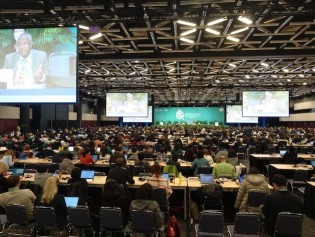
Global Biodiversity Framework: A ‘Good Compromise’
In a landmark agreement, all parties of the United Nations Convention on Biological Diversity (UNCBD) adopted the draft Global Biodiversity Framework (GBF) to protect at least 30% of the world’s lands and water by 2030.
Gender Target at COP15: Russia’s Single Word Objection Holds Up Process
Since the beginning of the high-level segment, tensions have been steadily rising at the 15th meeting of the conference of the parties to the UN Convention on Biological Diversity (CBD COP15) among all participants, including members of country delegation teams, NGOs, observers, monitors, and media. At the press events held daily at the media center and various other events in the Montreal Convention Center, an outburst of anger and frustration have become a common sight.
COP15: Impact of Mega Infrastructure Projects on Biodiversity Stay Off-Radar
As the COP entered its crucial second week, negotiations are intensifying now. A slew of new contact groups – meeting mostly behind closed doors – are discussing the minutest details of the Global Biodiversity Framework and the contentious issues within or around it, such as Digital Sequencing Information, Access, and Benefit Sharing. The core aim of all these groups is to talk and resolve all issues and produce a draft treaty that will be acceptable to all parties.
As COP15 Begins, Biodiversity’s ‘Paris Moment’ Looks a Distant Dream
The long-awaited 15th Convention of United Nations Biological Diversity (CBD COP15) finally started this week in Montreal, Canada. After four years of intense negotiations and delays caused by the COVID-19 pandemic, nations have gathered again for the final round of talks before adopting a new global treaty – the post-2020 Global Biodiversity Framework (GBF).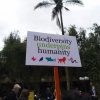
Global Biodiversity Agenda: Nairobi Just Added More to Montreal’s Plate
As the last working group meeting of the Post 2020 Global Biodiversity Agenda concluded here on Sunday, the delegates’ job at COP15 Montreal just got tougher as delegates couldn’t finalize the text of the agenda. Texts involving finance, cost and benefit-sharing, and digital sequencing – described by many as ‘most contentious parts of the draft agenda barely made any progress as negotiators failed to reach any consensus.
Centering Gender in the Next Biodiversity Agenda: A Long Way to Montreal
“I often hear, ‘What do women have to do with biodiversity?' And I want to ask them back, 'What do men have to do (with biodiversity)?’,” says Mrinalini Rai, a prominent gender equality rights advocate at the 4th Meeting of the Open-Ended Working Group of the UN Biodiversity Convention, which started this week in Nairobi.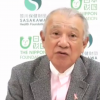
Zero-Leprosy in Pandemic: Experts, Advocates Discuss New Strategies
As 2021 nears its end, public health systems worldwide remain severely strained by COVID 19, which is showing no sign of ending. But even as countries battle to control the deadly pandemic, they must also maintain the progress made against other diseases, including leprosy, global leprosy experts and advocates have urged.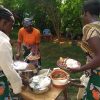
How Land Management Can Restore Hope to Women in Rural Kenya
Jenifer Kamba, 33, has always loved farming – a love passed on to her by her late husband after they married 14 years ago. The young farmer duo grew maise, pepper and vegetables on their two-acre farm in Kivandini of Kenya’s Machakos county. Even after her husband died five years ago, Kamba didn’t stop farming. However, of late, the soil looks dry, and her production has declined considerably.
– Conserving Tigers, Elephants and Bison, One LPG Stove at a Time –
On the occasion of World Environment Day, 5 June 2021, drawing from IPS’s bank of features and opinion editorials published this year, we are re-publishing one article a day, for the next two weeks. The original article was published on April 1 2021

Exclusive: Mauritius’ First Female President on Why We Need Science Diplomacy to Address Major Challenges
If we want to address the great challenges this world is facing, we have to factor in science into all our narratives, according to Dr. Ameenah Gurib-Fakim, the first woman president of Mauritius and renowned biodiversity scientist.
Conserving Tigers, Elephants and Bison, One LPG Stove at a Time
As the sun sets over the canopy of Albizia amara trees, a thin blanket of fog begins to descend over the forests of the Malai Mahadeshwara Hills Wildlife Sanctuary, which lies roughly 150 km south of the Indian city of Bangalore. Not so long ago, plumes of smoke would rise from the hamlets dotting the forests as women busily cooked dinner for their families over wood stoves. But tonight, dinner will be a smokeless affair in dozens of villages as communities have opted for the use of liquefied petroleum gas (LPG), a clean burning fuel that has given a boost to the health and safety of both the forest and its people thanks to a unique conservation project.
As Army Takes Over, Fear and Uncertainty Grip Myanmar Citizens
Yangon resident Ni Ni Aye walked to her office yesterday morning. A couple of hours before, the army had staged a coup by seizing power and declaring a state of emergency in Myanmar. Ni Aye, an employee of one of Yangon’s largest technology firms, tried to call her colleagues and family, but phone services were down. So, she decided to walk to the office and see what was happening. “There were no armoured vehicles or soldiers with heavy weapons, yet everything was extremely quiet. It was very confusing; nobody had a clue on what is really happening. Then we realised, the action is all happening in the capital,” Ni Aye told IPS.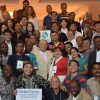
How COVID-19 Adds to the Challenges of Leprosy-affected People
Lilibeth Evarestus of Lagos, Nigeria doesn’t like the concept of handouts — she is against the idea of thinking of leprosy-affected people as weak. Yet, for several months now, Evarastus – a human rights lawyer and founder of community welfare organisation, Purple Hope Foundation – has been spending a lot of time on the road, distributing food items and hygiene products among the leprosy-affected people in her community.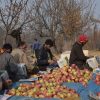
60 Days on, India’s Biggest Farmers’ Protest Shows No Sign of Weakening
“This road is my home now and it will decide my future,” Sukhvinder Singh, a 27-year old farmer from the Moga district of Punjab, tells IPS. Last November, weeks after the government of India passed three farm bills he felt were anti-farmer, Singh travelled to Singhu, a village near Delhi, to demand the laws be repealed. Since then, he has been living in a tent he shares with five other fellow farmer-protesters.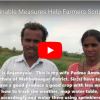
Sustainable Measures Help Farmers Script a Positive Story Amid COVID-19 Uncertainty
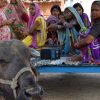
The Rape of India’s Dalit Women: It’s All about Gender & Class Subordination
Shabnam*, a young woman from Northern India’s Haryana state, is two years away from becoming a law graduate. She sees parallels between her own rape and that of the 19-year-old Maha Dalit woman whose brutal rape and torture by a group of men from a “dominant” or “higher” caste in the neighbouring state of Uttar Pradesh triggered nationwide protests.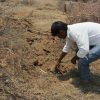
Q&A: Land Restoration can Help Restore Post-COVID-19 Economy
Investing in sustainable land management and land restoration will help build economies post-COVID-19 and help poor people increase their incomes as the destruction of global food chains by the pandemic provides a chance for ensuring diversity in production through ensuring the inclusion of local producers.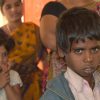
Caring for Poorest and Most Underserved Children Vital for Creating a Better World
Kerry Kennedy has a clear mission – along with Nobel laureates and leading international figures – she wishes to ensure that hard-won gains in children’s rights are not destroyed by the economic fallout from the COVID-19 pandemic.
Nobel Laureate Kailash Satyarthi on Where to Find the $1 trillion Needed for Marginalised Children
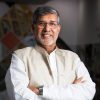
Exclusive: Kailash Satyarthi Warns over a Million Children Could Die Because of COVID-19 Economic Crisis
Nobel Laureate Kailash Satyarthi warns of the danger that over one million children could die, not because of the COVID-19 pandemic, but because of the economic crisis facing their families. In an exclusive interview with IPS, Satyarthi said that without prioritising children we could lose an entire generation as evidence mounts that the number of child labourers, child marriages, school dropouts and child slaves has increased as the COVID-19 pandemic spread across the globe.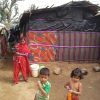
No More Lost Generations: Global Fund Provides Education for Children in Crisis
15-year-old Humaira* sits on the mud floor of her hut in Ukhiya camp, Cox's Bazar, listening as the rain beats down on the tarpaulin roof.Next Page »

